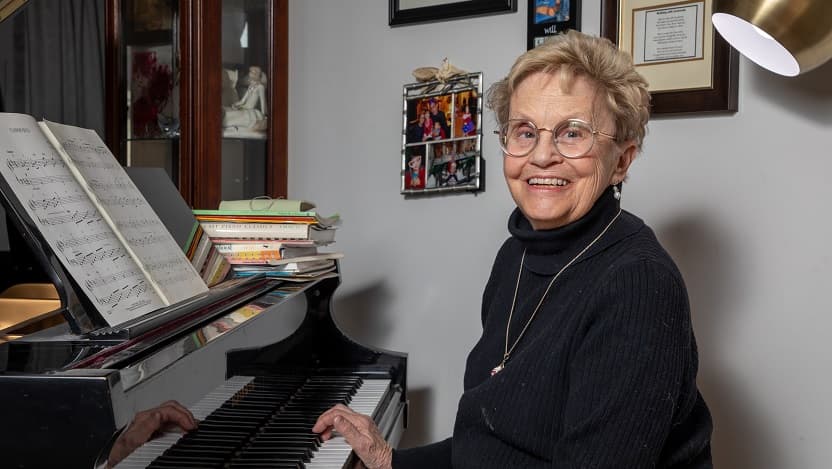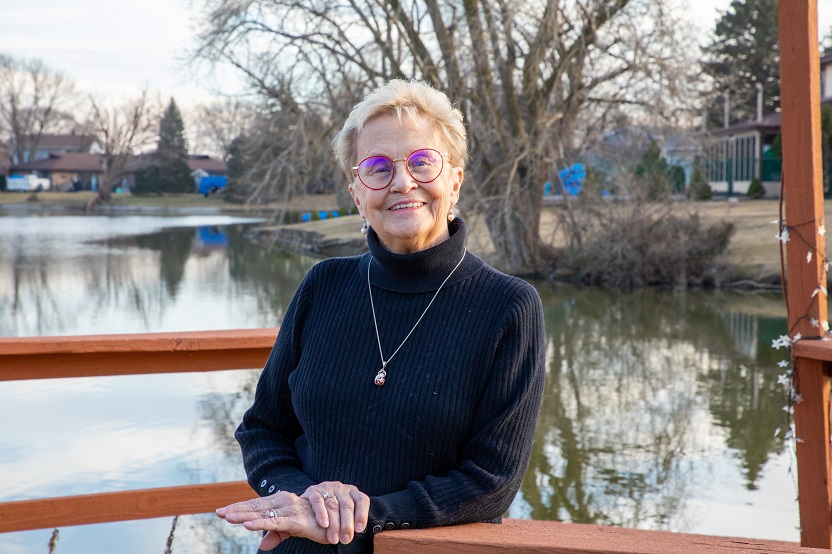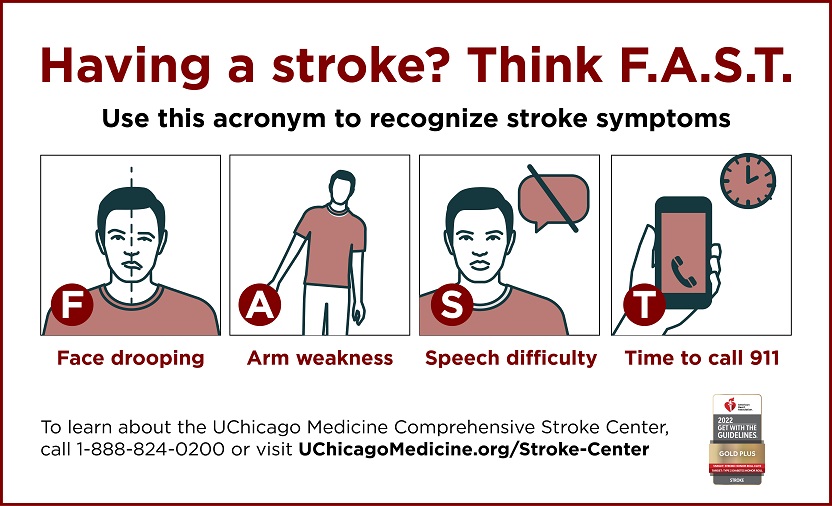UChicago Medicine Ingalls Memorial delivers lifesaving care for ‘mini stroke’

Marcia Pavich, at home in Lynwood, has returned to playing the piano after receiving timely care for a 'mini stroke' at UChicago Ingalls Memorial Hospital.
One night in April 2023, Marcia Pavich started to experience muscle weakness and lightheadedness.
Pavich, a retired nurse, suspected she might be experiencing a transient ischemic attack (TIA), also known as a “mini stroke.”
TIAs happen when a blood clot temporarily clogs an artery and part of the brain does not get the blood it needs. Symptoms come on quickly and last a short time — often less than 5 minutes — and there is no injury to the brain.
But TIAs are critical predictors of stroke, and they can occur days, weeks or even months beforehand.
That's why Pavich quickly called UChicago Medicine Ingalls Memorial Hospital for help.
Dedicated stroke care in the South Suburbs
After learning about the incident and symptoms, Pavich’s doctor urged her to come to the emergency department to be seen by experts at the Ingalls Memorial Stroke Center of Excellence.
“We always tell patients that ‘time is brain,’ meaning that they need to get to a stroke center as soon as possible when they begin to experience stroke symptoms such as lack of balance, slurred speech or weakness on one side of the body,” said Engin Yilmaz, MD, PhD, a board-certified neurologist and lead physician at the Ingalls Memorial stroke center.
A designated primary center for stroke care since 2006, Ingalls Memorial provides integrated care from the emergency department, nursing, radiology, laboratory and pharmacy departments — plus rehabilitation and support for inpatient and outpatient cases.
For more complex cases, Ingalls’ interdisciplinary stroke center team can collaborate with the University of Chicago Medicine’s Comprehensive Stroke Center at the Hyde Park campus, where acute stroke care teams can perform neurosurgery and endovascular procedures.

Rapid treatment and rehab after stroke
Within five minutes of her arrival at Ingalls Memorial, Pavich received the stroke center’s care protocol, which includes immediate CT and MRI scans to check for irregularities.
“Any patient not seen immediately after experiencing a stroke runs the risk of having a permanent neurological deficit, cognitive issues or language impairment — all of which can be devastating to the individual and their loved ones because it is irreversible,” Yilmaz said.
Pavich was moved into triage, where nurses administered tissue plasminogen activator (tPA), a medication that can quickly dissolve blood clots.
The medical team also began preliminary physical therapy by moving Pavich’s limbs, face and mouth so she would not lose function in those areas.
During her five-day stay, she received medical management along with physical and speech therapy.
“All types of rehab are huge components for recovery, and we try to begin as soon as possible,” Yilmaz said.
An accredited stroke program with a strong care team
Pavich, 76, who has fully recovered and resumed normal activities at her Lynwood home, is grateful for the care she received.
“You have no idea how it feels to be incapacitated,” she said. “Everyone was very efficient, very caring and showed plenty of respect. They went out of their way to make sure I felt good about my chances of recovery.”
The stroke center at Ingalls Memorial has received a gold seal of approval from the hospital accreditation organization Det Norske Veritas (DNV) for Primary Stroke Centers.
The accreditation signifies not only that the center has the necessary staffing, infrastructure and programs to stabilize and treat most emergent stroke patients, but also that it follows stringent national standards and guidelines to significantly improve patient outcomes.
Taking swift action at the first suspicion of a stroke — just like Pavich did — also plays a vital role.
“Never hesitate to call or seek medical attention if you think you’re experiencing a stroke,” Yilmaz said.

